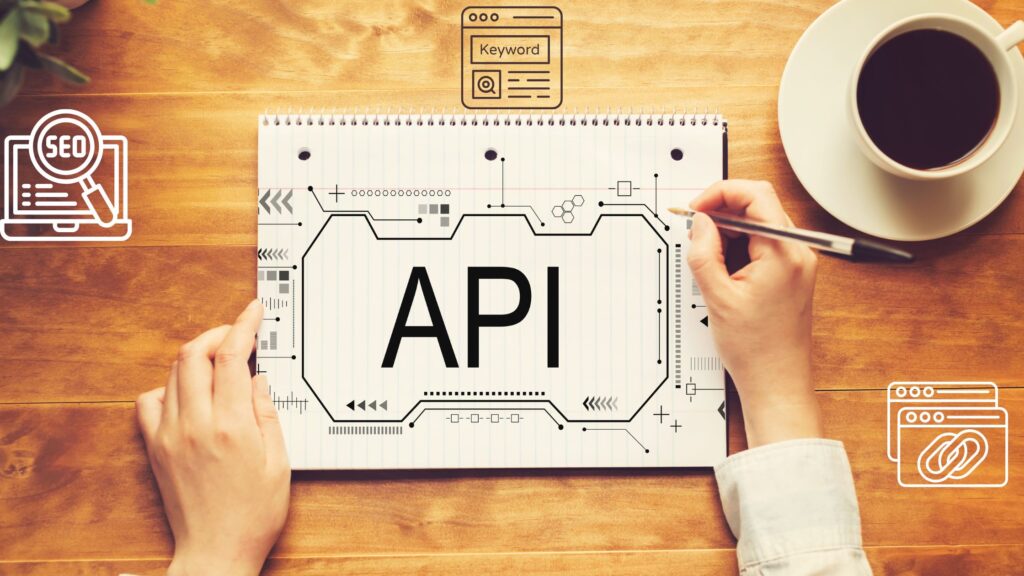Understanding API SEO: What It Is and Why It Matters
What is API SEO? In today’s digital landscape, understanding API SEO is crucial for businesses and developers alike. API stands for Application Programming Interface, and it serves as a means for different software applications to communicate with each other. When it comes to SEO, APIs can greatly impact how your website is indexed and ranked by search engines. Let’s dive deeper into what API SEO is and why it matters.
What is API SEO?
API SEO focuses on optimizing the content and functionality of an API to enhance its visibility and usability. Just like traditional SEO, which aims to improve the ranking of web pages in search engine results, API SEO aims to make APIs more discoverable and usable. Here are some essential elements of API SEO:
- Metadata Optimization: Just as web pages use meta tags to enhance SEO, APIs can benefit from clear and detailed metadata that describes their functionalities. This can include descriptions, endpoints, and versioning information that help developers understand what the API offers.
- Documentation Quality: Comprehensive and easy-to-understand documentation is vital for both users and search engines. Good documentation not only improves user experience but also aids in indexing the API correctly.
- Version Control: Maintaining clear versioning for your API ensures that changes are tracked and documented, which is important for SEO as it allows search engines and users to understand the API’s evolution.

Why API SEO Matters
Optimizing your API for SEO is not merely a technical exercise but has real implications for your business. Here are some compelling reasons why API SEO should be a priority:
- Increased Visibility: A well-optimized API is more likely to appear in search engine results. Higher visibility means more potential users discovering your API, which can exponentially increase traffic and engagements.
- User Adoption: A clear and user-friendly API attracts more developers. If an API’s documentation is easily accessible, developers are more inclined to adopt it, leading to a widespread user base.
- Competitive Advantage: Many businesses overlook API SEO, providing an opportunity for those who do. By implementing effective API SEO strategies, you can set your API apart from the competition.
Best Practices for API SEO
What is API SEO? Implementing API SEO isn’t complicated, but it does require attention to details. Consider these best practices to ensure your API is optimized:
- Use Descriptive Endpoint Names: Names should clearly reflect the functionality they provide. For instance, instead of naming an endpoint as
/getData, use/retrieveUserDetailsfor clarity. - Offer Interactive Documentation: Tools like Swagger or Postman provide interactive documentation where developers can test API functionality right from the docs. This feature enhances user experience and keeps developers engaged.
- Leverage Social Proof: Encourage developers to share their experiences and solutions with your API. User-generated content can significantly improve SEO by adding fresh content and keywords.
Common Pitfalls in API SEO
While you may be aware of the strategies to optimize your API, there are common pitfalls to avoid:
- Poor Documentation: Inadequate or confusing documentation can deter users and negatively affect discoverability.
- Neglecting Updates: Failing to update your API regularly can lead to outdated content that may mislead potential users.
- Not Analyzing Performance: It’s essential to measure the performance of your API through analytics. Understanding how users interact with your API helps you optimize it better.
Integrating SEO principles into your API enhances its discoverability and usability. Focusing on key components like metadata, documentation quality, and versioning can propel your API to the forefront of search engine results, attracting more developers and businesses. By recognizing the importance of API SEO and implementing best practices, you can forge a path for increased traffic and user engagement.
How APIs Influence Search Engine Rankings
What is API SEO? In today’s digital landscape, the importance of APIs (Application Programming Interfaces) is often understated when it comes to search engine rankings. APIs play a crucial role in how different platforms interact and share data. But how exactly do they influence your visibility on search engines? Let’s explore this topic in detail.
Understanding APIs and Their Role
APIs allow different software systems to communicate with each other. They enable automated functionalities and data sharing, which can lead to improved website performance and user experience. Search engines are known to favor websites that provide valuable and relevant content. With APIs, you can enhance your website in ways that contribute positively to your SEO strategy.
Enhancing User Experience
Your website’s user experience directly affects how search engines rank it. Well-implemented APIs can provide users with relevant information quickly and efficiently, leading to lower bounce rates and higher engagement. For example:
- Dynamic Content: APIs can facilitate the retrieval of real-time data, such as weather reports or stock prices, keeping your content fresh and engaging.
- Third-Party Integrations: Tools like social media sharing buttons and live chat features can be integrated through APIs, leading to a more interactive experience for users.
Improving Loading Speed
Loading speed is a critical ranking factor for search engines. Fast-loading websites tend to rank higher because they provide a better user experience. Utilizing APIs can help streamline processes on your website. For example, instead of loading all data at once, you can use APIs to fetch data as needed. This not only speeds up page load times but also enhances user satisfaction.
Enabling Better Data Management
What is API SEO? APIs can significantly improve how you manage data across your digital platforms. This efficient data handling can positively impact your SEO efforts. Here are some key ways:
- Integration with Analytics: Connecting APIs to analytics tools allows for better tracking of user behavior and engagement metrics, helping you refine your content based on real-time data.
- Updating Content Automatically: For platforms like e-commerce, APIs can automatically refresh product lists or inventory levels. This ensures that the information is current, which search engines prioritize.
Facilitating Schema Markup
Schema markup is important for helping search engines understand the context of your content. APIs can assist in generating schema markup dynamically. This can lead to rich snippets in search results, such as star ratings or product pricing, which improve visibility and click-through rates.
API Data into Your SEO Strategy
Given the myriad benefits that APIs bring, it’s crucial to consider how you can incorporate them into your SEO strategy effectively. Here are some actionable steps:
- Identify Key APIs: Look for APIs that fit your business needs and can add value to your content.
- Optimize Data Retrieval: Ensure that the data fetched by your APIs is structured properly for SEO purposes.
- Monitor & Adjust: Regularly analyze the impact of API usage on your site’s performance and adjust strategies accordingly to ensure ongoing relevancy.
The Impact of Mobile Optimization
With the surge in mobile traffic, search engines now prioritize mobile-friendly websites. APIs can help you create responsive designs and adaptive content, leading to a better mobile experience. A mobile-optimized site usually results in higher engagement and conversion rates, which are positive signals to search engines.
APIs significantly influence search engine rankings through their ability to enhance user experience, improve loading speed, facilitate better data management, and support SEO best practices such as schema markup. By integrating the right APIs into your website, you can not only optimize your SEO strategy but also create a more engaging platform for users. In this fast-evolving digital space, leveraging APIs might just be the differentiator that elevates your online presence.
Best Practices for Implementing SEO in APIs
What is API SEO? In today’s digital landscape, implementing SEO in APIs is essential for maximizing visibility and ensuring your application’s content is easily discoverable. With the rapid growth of web applications and mobile platforms, understanding how to optimize API endpoints can significantly enhance user experience and drive traffic. Here are some best practices to consider.
Understand Your API’s Audience
Before diving into the technical aspects, it’s crucial to understand who your users are and what they expect from your API. You should:
- Identify the target audience, such as developers, businesses, or end-users.
- Analyze typical use cases to tailor your API responses accordingly.
- Gather feedback on how users interact with your API, ensuring you meet their needs effectively.
Use Clear and Descriptive API Documentation
Documentation serves as a roadmap for users. Well-structured documentation not only assists developers but also plays a vital role in SEO. Optimize your API documentation by:
- Including relevant keywords that users might search for when looking for API solutions.
- Utilizing clear headings, bullet points, and tables to enhance readability.
- Offering examples of common requests and expected responses.
Create SEO-Friendly Endpoint URLs
When designing your API, the structure of the endpoint URLs can influence SEO. Here are some key tips:
- Keep URLs straightforward and descriptive. For instance, instead of using
/api/v1/getData, use/api/v1/productsor/api/v1/users. - Incorporate relevant keywords that reflect the resource being accessed.
- Utilize hyphens to separate words in the URLs, making them easier to read.
Optimize API Response Formats
Your API should deliver content in formats that are easily crawlable and indexable. Aspects to consider include:
- Using JSON or XML, as these formats are widely accepted and parsed by search engines.
- Ensuring that the data is structured meaningfully, which can help search engines better understand the content.
- Providing additional metadata like descriptions, tags, or annotations within the responses to enhance SEO.
Implement Caching for Performance
Performance plays a significant role in user experience and SEO. To improve API response time:
- Utilize server-side caching to store frequently requested data, which reduces load times.
- Implement client-side caching to enable users to access data without repeated requests to the server.
- Regularly monitor API performance metrics to identify bottlenecks and address them promptly.
Use HTTP Status Codes Effectively
Proper use of HTTP status codes helps convey the nature of the API response. Here are some common codes you should implement:
| Status Code | Description |
|---|---|
| 200 | Success – The request was successful and the response contains the requested data. |
| 400 | Bad Request – The server cannot process the request due to a client error. |
| 404 | Not Found – The requested resource does not exist on the server. |
| 500 | Internal Server Error – The server encountered an unexpected condition preventing it from fulfilling the request. |
Leverage Analytics to Monitor API Usage
Analytics tools can provide valuable insights into how users interact with your API. Focus on:
- Tracking usage patterns to understand which endpoints are most popular.
- Analyzing error rates to identify potential issues in your API.
- Gathering performance data to continuously optimize for speed and efficiency.
By adhering to these best practices, you can effectively implement SEO in your APIs, enhance visibility, and improve user engagement. Consistency in applying these strategies will yield substantial benefits as your API grows and evolves.
Measuring the Impact of API SEO on Digital Presence
What is API SEO? Understanding the intersection of API (Application Programming Interface) and SEO (Search Engine Optimization) can significantly impact your digital presence. As businesses increasingly rely on APIs for data exchange, recognizing how API SEO can influence search visibility becomes essential. To gain insights, measuring the impact of API SEO involves examining different aspects of your digital strategy.
What is API SEO?
API SEO refers to the optimization processes used to enhance the discoverability of your APIs in search engine results. Unlike websites, APIs can function as hidden resources, which means their effectiveness can often go unnoticed. By applying specific SEO techniques tailored for APIs, you can improve their visibility, attract more developers, and ultimately increase user engagement.
Key Metrics for Measuring API SEO Performance
Measuring the impact of API SEO requires tracking various performance metrics. These metrics provide invaluable insights into how well your API is performing in terms of search visibility and user engagement. Here are some key metrics to focus on:
- API Traffic: Monitor the number of users accessing your API through organic search. This will highlight the impact of your optimization efforts.
- Keyword Rankings: Track the primary keywords associated with your API endpoints and observe their search rankings over time.
- Developer Engagement: Measure the number of calls made to your API. Increased calls can indicate better discoverability and interest.
- Bounce Rate: Analyze how many users leave your API documentation pages without taking action. A high bounce rate may suggest content that needs enhancing.
- Conversion Rate: Identify how often users who access your API ultimately take desired actions, like signing up or completing a purchase.
Importance of API Documentation in SEO
Your API documentation serves as a vital resource for SEO. Well-structured and informative documentation can enhance user experience while boosting search visibility. To improve your SEO for API documentation, consider these strategies:
- Keyword Optimization: Use relevant keywords that developers might use when searching for API solutions. Incorporate these terms naturally into your documentation.
- Clear Structure: Organize your documentation logically. Clear headings, bullet points, and numbered lists make it easy for users to find information quickly.
- Rich Snippets: Consider implementing schema markup to provide search engines additional context about your API, leading to enhanced search results.
- Regular Updates: Keep your documentation current with regular content updates. Fresh content signals relevance to search engines.

Analyzing API User Behavior
What is API SEO? Understanding how users interact with your API can provide insights that inform your SEO strategies. Proper analysis involves evaluating the behavior of users from the point of entry to their interactions with your API. Here are some methods to analyze user behavior:
| Analysis Method | Description |
|---|---|
| User Flow Analysis | Visualize the pathways users take, helping to identify potential obstacles that hinder API usage. |
| A/B Testing | Test multiple versions of your API documentation to determine which setup resonates more with users. |
| Heatmaps | Utilize heatmaps to visualize where users click most often, pinpointing areas that may need adjustments. |
| Feedback Surveys | Collect direct feedback from users to identify areas of improvement in your API and documentation. |
Leveraging API Integrations for Enhanced SEO
API integrations with other platforms can enhance your API’s reach and performance in search engines. Consider exploring the following integration strategies:
- Third-party Services: Integrate with popular platforms where users are likely to find your API, improving overall exposure.
- Social Media: Share your API features on social media channels to engage a broader audience and drive traffic.
- Community Forums: Engage with developer communities and forums to create buzz around your API, encouraging discussions that may lead to natural backlinks.
Measuring the impact of API SEO on your digital presence involves a multi-faceted approach. By focusing on key performance metrics, enhancing your API documentation, analyzing user behavior, and leveraging integrations, you can significantly boost your API’s visibility and effectiveness. Embrace these strategies to ensure your API is not just functional but also seamlessly integrated into your overall digital marketing strategy.
Future Trends in API SEO and Digital Marketing Strategy
What is API SEO? As digital marketing evolves, understanding the intersection between APIs and search engine optimization (SEO) becomes increasingly crucial. APIs, or Application Programming Interfaces, are tools that allow different software applications to communicate with each other. This capability is vital for enhancing both user experience and SEO effectiveness. Let’s explore how API SEO is shaping future trends in digital marketing strategies.
The Role of APIs in Modern Websites
In today’s digital landscape, websites rely heavily on APIs to gather and share data. By integrating APIs, businesses can:
- Access real-time data updates, making their websites more relevant.
- Enhance functionality and features on their sites, leading to improved user engagement.
- Increase speed and efficiency in providing content, which is critical for SEO ranking.
Growth of Voice Search and AI
As voice search and artificial intelligence become more prevalent, the way users interact with search engines is changing dramatically. APIs play a vital role in this evolution by enabling:
- Seamless integration of voice recognition technologies with databases.
- Real-time responses to user queries from various data sources via APIs.
- Enhanced personalization, delivering tailored content based on user preferences.
For businesses, adapting to this change means ensuring that content is available and easily accessible through APIs. Optimizing for voice search involves using structured data that APIs can fetch to provide accurate answers to voice queries. This adaptability is essential for staying relevant in the market.
Data-Focused Marketing Strategies
The amount of data generated daily is astronomical, and APIs serve as the bridge to harness that data effectively. Future trends will likely see:
- Increased collaboration between companies to share data through APIs, enriching content and analytics.
- Use of big data analytics to inform marketing strategies, allowing businesses to target audiences more effectively.
- Greater investment in security and privacy measures to protect data shared through APIs.
Marketers who leverage this data will be able to make more informed decisions, leading to refined strategies that are data-driven rather than intuition-based.
The Importance of Mobile Optimization
As mobile usage continues to grow, optimizing for mobile is no longer optional but imperative. APIs contribute significantly by:
- Facilitating fast-loading mobile applications that enhance user experiences.
- Enabling smooth integration of various services within mobile apps, keeping users engaged for longer periods.
- Providing dynamic content updates that keep information fresh and relevant.
Mobile-first indexing is now a priority for search engines. Therefore, businesses must ensure that their APIs are optimized for mobile to maintain or improve their SEO rankings.
Emerging Technologies and Their Impact
The rise of emerging technologies such as blockchain and IoT (Internet of Things) will influence API SEO:
- Blockchain can enhance data security and transparency, impacting how APIs share valuable information.
- IoT devices generate vast amounts of data, and APIs will be crucial in aggregating and sharing this information for SEO purposes.
Competitive Advantage Through API Integrations
Integrating APIs can provide a competitive edge. Businesses embracing API technologies can expect to:
| Benefit | Details |
|---|---|
| Enhanced User Experience | Quick access to relevant information fosters customer satisfaction. |
| Improved Load Times | APIs streamline content delivery, increasing page speed. |
| Real-Time Data Retrieval | Businesses can adjust their strategies instantly based on current data trends. |
Companies that understand how to navigate these trends will likely have a commanding presence in their respective markets.

What is API SEO? In a world where digital marketing strategies are constantly changing, embracing the potential of API SEO is crucial for future success. With the growth of voice search, the emphasis on data-driven decisions, the necessity of mobile optimization, and the influence of emerging technologies, it is clear that APIs will play a key role in shaping the landscape of digital marketing. By leveraging these tools effectively, businesses not only enhance their SEO efforts but also create a more engaging and functional experience for their users.
Key Takeaway:
Key Takeaway: The Importance of API SEO in Modern Digital Strategies
Understanding API SEO is crucial in today’s digital landscape. APIs, or Application Programming Interfaces, facilitate communication between different software systems. By optimizing these interfaces for search engines, businesses can significantly enhance their visibility on the web. The rising importance of API SEO lies in the fact that it allows developers and marketers to reach a broader audience effectively. This optimization is not only about making data available but also ensuring it is discoverable and ranks well in search engine results.
APIs play a pivotal role in influencing search engine rankings. Well-structured APIs can enhance the user experience by delivering relevant and rich content directly to users. Search engines now prioritize comprehensive, authoritative content, which APIs can supply when properly optimized. relevant keywords, using structured data, and ensuring fast response times are crucial for APIs. These factors can contribute to better rankings in search results, compelling businesses to pay attention to their API design and implementation.
What is API SEO? Implementing best practices for SEO in APIs is essential for maximizing their potential. This includes using searchable endpoints, providing excellent documentation, and ensuring that the API is user-friendly. Furthermore, leveraging analytics to track usage and performance can help marketers identify areas for improvement, ensuring that the API meets both user needs and search engine criteria.
Measuring the impact of API SEO is another critical step for businesses aiming to improve their digital presence. By analyzing traffic, conversion rates, and user engagement, companies can gauge the effectiveness of their API strategies. Tools like Google Analytics can provide insights into how users interact with their APIs, allowing for data-driven adjustments.
Looking ahead, future trends in API SEO are set to evolve alongside advancements in technology and digital marketing strategies. The growth of voice search, artificial intelligence, and machine learning will continuously shape how APIs interact with users and search engines. As a result, businesses must stay updated on these trends to ensure their API SEO strategies remain effective and relevant. Embracing API SEO will not only enhance visibility but also create a seamless and user-focused digital experience, which is crucial for staying competitive in the marketplace.
Conclusion
Navigating the evolving landscape of digital marketing requires a keen understanding of API SEO and its pivotal role in shaping online visibility. By comprehensively understanding what API SEO entails and recognizing its significance, businesses can effectively harness its potential to enhance their search engine rankings. APIs, when optimized correctly, serve not only as bridges between different software applications but also as powerful tools that can elevate your digital presence in a competitive market.
What is API SEO? Implementing best practices for SEO in APIs is essential. This includes ensuring clean, structured data, optimizing response times, and providing comprehensive documentation. These practices contribute to a seamless user experience while making it easier for search engines to crawl and index your content.
Measuring the impact of API SEO is crucial for understanding its effectiveness. Utilizing analytics tools to track API performance and its correlation with traffic and engagement metrics will provide insights into what is working and what needs improvement.
Looking ahead, the future of API SEO is promising as more businesses embrace this technology. The integration of artificial intelligence and machine learning into search algorithms suggests that APIs will play an even more critical role in how content is discovered and consumed. By adopting a proactive approach and staying informed about emerging trends, you can position your business to capitalize on the evolving nature of API SEO within your overall digital marketing strategy.
Embracing API SEO not only helps improve your search visibility but also enhances the overall user experience. As this field continues to grow, staying ahead of the curve will ensure that your brand remains relevant and competitive in an increasingly digital world.
FAQ
What is SEO Audit API
An SEO Audit API is a programmatic interface that allows developers to access and integrate SEO auditing tools and data into their own applications or workflows. It enables automated website analysis, providing insights into technical SEO, content quality, and backlink profiles, facilitating data-driven optimization efforts.
What is SEO Analyzer API
An SEO Analyzer API is a tool that provides programmatic access to website analysis data. It allows developers to integrate SEO audits and performance metrics directly into their applications, offering insights into site health, keyword rankings, backlink profiles, and other crucial SEO factors. This enables automated SEO monitoring and reporting.
What is SEO Review Tools API
SEO Review Tools API allows developers to programmatically access and integrate SEO analysis data into their own applications. This enables automated website audits, keyword research, rank tracking, and competitor analysis, streamlining SEO workflows and providing customized insights. Essentially, it’s a way to build your own SEO tools.
What is SEO keyword API
An SEO keyword API is a tool that allows you to programmatically access keyword data. It provides information like search volume, competition, and related keywords, helping you optimize content and improve search engine rankings. Essentially, it’s a way to automate keyword research.
How do I check my SEO audit
Use a free online SEO audit tool. Enter your website URL. The tool will analyze your site and provide a report highlighting areas for improvement, covering technical SEO, on-page optimization, and backlink profile. Review the report and prioritize fixes.

